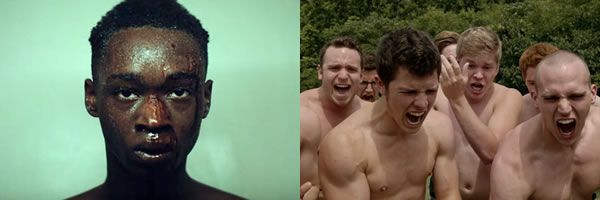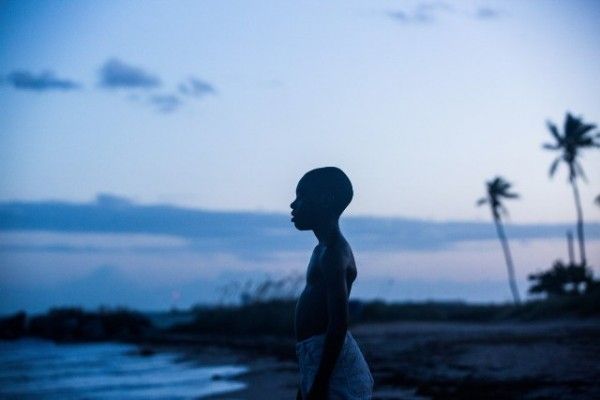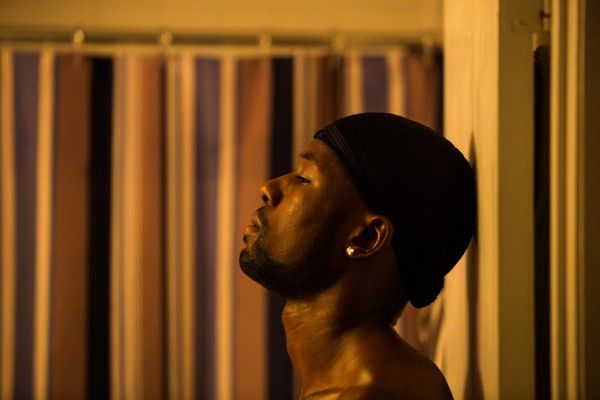“Toxic masculinity” is a phrase we don’t hear very often, but maybe we should.
It came up in an Ebony interview with the director of The Birth of a Nation: Nate Parker said, “All I can do is seek the information that’ll make me stronger, that’ll help me overcome my toxic masculinity, my male privilege, because that’s something you never think about.”
It came up in the aftermath of the deadliest mass shooting against Americans and LGBTQ in history: Salon writer Amanda Marcotte wrote of the Orlando murders, “Our national attachment to dominance models of manhood is a major reason why we have so much violence.”
It also comes up in two films this year: Moonlight and Goat. One is an emotionally charged story of a gay black man’s emergence into manhood, while the other goes behind the scenes of horrific fraternity hazings. One is already dubbed an early awards contender, while the other floats Nick Jonas as its supporting star, but both are alike in how their characters are beaten, broken, and rebuilt by this warped idea of what it means to be a man.
To be clear, when I refer to toxic masculinity, I refer to a cultural stereotype. It’s not about the birds and the bees or personality traits, but about some hallucinatory commandments of manhood: men are violent, men are emotionless, men are dominant, hyper-sexual, and the list goes on. This is the world in which the young Chiron lives, as told by writer-director Barry Jenkins in Moonlight — but he still has it worse.
In a gut-wrenching scene, Chiron is sitting at the table of his substitute family and asks, “What’s a faggot?” The boy, nicknamed Little, heard it as he was chased through the streets by a gang of kids, who chucked rocks through the window of a drug den as he hid inside for safety. Chiron has been beaten not just by the kids at school, but emotionally scarred by his own drug-addled mother, so he’s left to turn to Juan (Mahershala Ali), a well-meaning drug dealer, and his girlfriend, Teresa (Janelle Monáe).
A faggot, he explains, is a word people use to make gay people feel bad. “You can be gay,” he continues, “but you can’t let nobody call you a faggot.” The word, as we see it used when Chiron gets into high school, is more than just a homophobic slur — it’s used to emasculate, to dehumanize. As a teen, Chiron is living in hell. Oftentimes he can’t go home because his mother bullies him and steals his money for more drugs, and he hates school because he’s on everyone’s hit list. Even the first and only boy he ever kisses is later pressured to participate in his very bloody and very public beating in the schoolyard.
Nursing his wounds in the principal’s office, he finds himself bullied again: “If you were a man, there’d be four other knuckleheads sitting here.” To that, all he can do is cry because, as he chokes out through tears, “You don’t even know.” When he’s finally pushed too far, he makes a decision that sets him on a path towards dealing. The small, quiet boy is no more. The tall, gangly teen is no more. He’s now a muscled man with golden grills, a Biggie Smalls crown adorning his dashboard, a black wife-beater, a glistening chain, and a cold, hard demeanor.
This is one symbol of manhood. For black men, it’s a stereotype: it’s the thug, the drug pusher, the hardcore rapper, and also one of hyper-masculine ideals. When Chiron showed emotion, he was beaten. When he allowed himself to kiss another boy, that boy eventually betrayed him. When he was victimized, he was seen as less than a man for his inability to stand up for himself, to speak out — even though silence was his protection.
The idea that LGBTQ men are less than men is at the very root of bigotry, and it’s why many actors refuse to play gay on screen. According to NewNowNext, Parker declared that, in order “to preserve the black man…you will never see me take a gay role.” He later remarked during the Essence Music Festival, “I refuse to allow any piece of work to emasculate me for very specific reasons.” Parker has since apologized for these statements — again, citing “toxic masculinity” — but he’s not the only actor to see a gay role as an affront to their careers, to their manhoods.
Though they’re coming from a different place in Hollywood as white men, James Franco and Nick Jonas are among the few in the industry who have taken up queer roles. Franco played a gay man in MILK and I Am Michael, and he explored sexuality and masculinity in the pornographic Interior. Leather. Bar., a short film called “Masculinity & Me,” and the upcoming King Cobra. Jonas plays bisexual for the boxing series Kingdom and gay for Scream Queens. Despite their insistence to the contrary, both actors have had their sexualities called into question by the media as a result.
In that sense, these two are the perfect pair to appear in something like Goat. Jonas plays Brett, an alpha frat bro of Phi Sigma Mu, while Franco plays Mitch, a veteran brother still consumed with greek life after graduating. But the true protagonist is Brett’s biological brother, Brad (Ben Schnetzer). Brad is not like Chiron. He’s white, grew up in a middle-class household, and went to college. Even his plight is difficult to sympathize with when you consider how much harder others have had it, but that doesn’t make his trauma any less traumatizing.
In high school, he suffered a brutal attack that left him with PTSD. Sitting in the police station after the incident, the cops treated him as some have treated rape victims, asking if he provoked his attackers. Seeing Brett’s strength and the hyper-masculine brotherhood of his fraternity, Brad falls into a depression in which he’s constantly trying to prove himself as a man by watching porn, banging back beers, and trying to score with women. When he gets to college, he’s quickly seduced by Phi Sigma Mu’s promise of family and pack mentality. So he enlists as a pledge in Hell Week against Brett’s warning, which only further motivates him to prove his might.
Brad isn’t gay, but, like Chiron, he hears faggot nearly every day. The brutal hazing that ensues isn’t the friendly kind where pledges are forced to chug beers, but the kind where the frat brothers lock them in cages, urinate on them, and force them to beat each other. When they’re about to break, they call them faggots and pussies because real men should be able to take the pain. One brother remarks, if they don’t go through the hazing, “what’s the fucking point” of being in a fraternity? Chiron was forced to bend by circumstance, but Brad had already grown into an adult before he was beaten, broken, and rebuilt believing in this horrific sense of manhood.
We should all be talking more about toxic masculinity. The warning signs aren’t always as extreme as with Chiron or Brad. In fact, most times it’s as simple as pressuring someone with three simple words, “Be a man.” But the consequences of accepting this dogma are seen everywhere — with rape culture, with homophobia, with sports, with success, with office politics, with the very presidential election.
Michael Rohrbaugh, a filmmaker and advocate for LGBTQ rights, attempts to illustrate some of these consequences with his short film “American Male.” It’s one of three short films that won MTV’s Look Different competition and focuses not on the Chirons or the Brads of the world, but the average white American male who grows up in Middle America on a healthy diet of these ideals. Appropriately, it doesn’t end with a message of hope, but rather a warning: “I am no longer a person, but a set of social cues. Not a person, but a path of least resistance.”




